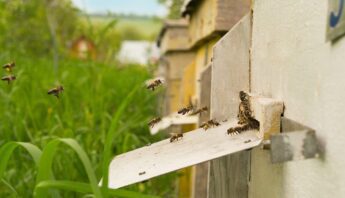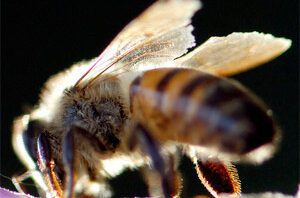Reflecting on PAN’s accomplishments over the past year, I’m feeling deeply grateful to each and every person in our broad community — including you. Every person involved in this work provides the inspiration and muscle we need to transform corporate and government systems.
And as 2013 draws to a close, my attention turns to the coming year. How can we best work together to keep building momentum for powerful change? How can we make even more progress toward healthy, fair food and farming in the new year?
In addition to strong grassroots science, policy and media work, some of PAN's resolutions for the coming year include:
- Stepping up federal action to protect bees: PAN is keeping the spotlight focused on the science showing the alarming impact of pesticides on bees. And the media have caught on. Unprecedented coverage in the New York Times, NPR and other major outlets — combined with network and coalition organizing with our allies (including professional beekeepers) — has kept the issue front and center. Congress has taken notice and is stepping up, with the introduction of the "Save America's Pollinators Act," and retailers like Lowe's and Home Depot are feeling the public pressure to pull neonicotinoid pesticides from their shelves. And PAN has worked with partners across the pond to support the EU's two-year ban on pesticides known to harm bees. Still, the EPA continues to drag its feet. In 2014, PAN will work even harder for proactive federal action to protect bees.
- Challenging the "Big 6" pesticide corporations: More cities and states are pushing back against genetically engineered (GE) crops — and the hazardous pesticides used alongside them. This year, Kaua'i passed a law that increased protections for those living, working and playing near GE test fields. And on the Big Island, concerned citizens passed policies to keep GE crops off the island. These communities went head-to-head with the might of the pesticide industry. And won. In 2014, PAN resolves to do all we can to continue making the link between GE seeds and the increased use of harmful chemicals — and to keep challenging the pesticide industry's control of food and farming.
- Continuing to work closely with partners around the world: In 2013 we cheered when Mexico halted GE corn crops and El Salvador banned over 50 agrichemicals, including many highly hazardous pesticides. The European Union, thanks to the organizing of PAN UK and others in our movement, banned the pesticides contributing to widespread bee deaths around the world. In 2014, PAN resolves to combine our resources across borders to elevate the debate at the UN level.
- Casting an even wider net: The American College of Obstetricians (ACOG) and the American Society for Reproductive Medicine (ASRM) recently issued a joint statement recognizing that “patient exposure to toxic environmental chemicals and other stressors is ubiquitous, and preconception and prenatal exposure to toxic environmental agents can have a profound and lasting effect on reproductive health across the life course.” In the coming year, PAN will continue building alliances with medical professionals, parents and others who are particularly concerned about children’s health. Among other things, PAN resolves to share our new children's health toolkit far and wide in 2014.
- Following the money: Remember the Monsanto Protection Act? In 2013, millions of people spoke up in response to egregious examples of kowtowing to corporate interests. When Syngenta and Monsanto were awarded the World Food Prize in Des Moines last October, PAN was there to protest and to help deliver petitions signed by 345,000 people. In Washington State, when multinationals spent $30 per voter to narrowly defeat a GE labeling initiative, it highlighted how industry money is shaping the debate — and policy — on food and public health. In 2014, PAN will be working with allied organizations to show how international trade agreements like the Trans-Pacific Partnership and the Trans-Atlantic Free Trade Area, if approved, will make it even harder to hold corporations accountable for their actions.
Thank you for being in this work with us, and for your ongoing commitment to food and farming that will sustain and nourish us for generations. We have come a long way, but there is more to do. And together we are a formidable force. I look forward to working with you in 2014 and beyond.








